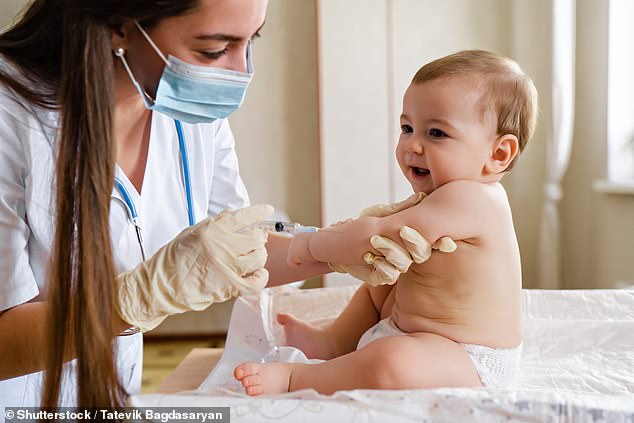Urgent warning issued to parents as cases of infectious disease skyrocket
Children and pregnant women are being urged to get vaccinated against whooping cough as cases in South Australia reach their highest level in six years.
This year, 492 cases of whooping cough have been reported in the state, compared to just 48 cases in 2023.
This highly contagious disease, also called whooping cough, can cause serious illness in people of all ages, but is most dangerous for infants.
Vaccination and revaccination are recommended for some, according to South Australia’s Chief Health Officer, Professor Nicola Spurrier.
“Anyone who spends time with babies under six months should consider getting a booster vaccination,” said Prof Spurrier.
‘Many people who have been vaccinated do not realize that immunity decreases over time.’
Professor Spurrier also encouraged pregnant women to get vaccinated to protect themselves and their newborn babies.
Children aged eighteen months, two, four and six years can receive the vaccination.
Children and pregnant women are being urged to get vaccinated after whooping cough cases in an Australian state hit a six-year high (stock image)
Health advice advises women to get vaccinated between the 20th and 32nd week of their pregnancy.
According to the National Communicable Disease Surveillance Dashboard, there have been more than 25,600 cases of whooping cough recorded across Australia so far in 2024.
Most cases have been identified in New South Wales, followed by Queensland and Victoria.
In New South Wales, 5,372 cases have been recorded up to June 30 this year, while Queensland recorded 4,951 cases in the same period.
SA Health warned that whooping cough epidemics occur in the state every three to four years.
The last time cases reached triple digits in September was in 2020 during the Covid-19 pandemic.
Worldwide, approximately 250,000 children die from whooping cough each year.
The disease can also be treated with antibiotics, but Professor Spurrier urged people to take basic health precautions to limit the spread of the infection.
This means that people cover their nose and mouth when sneezing and coughing and that they wash their hands regularly.

This year, a staggering 492 cases of whooping cough have been recorded in South Australia, compared to 48 cases in 2023 (stock image)
“Please stay home from work or school if you are sick to help prevent diseases like whooping cough from spreading to others,” said Prof. Spurrier.
The disease is highly contagious and is likely to infect most people who come into close contact with a sick person.
Whooping cough usually starts with typical flu symptoms, such as coughing, a runny nose, watery eyes and a mild fever.
A dry, persistent cough usually lasts for a week and the frequency of coughing causes a ‘whoop’ sound.
Severe cases can lead to pneumonia, bleeding in the nose, eyes or brain, and in some children brain damage can also occur.
